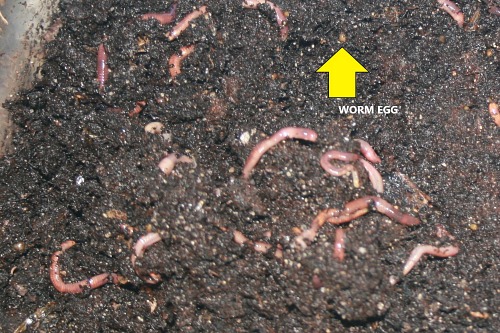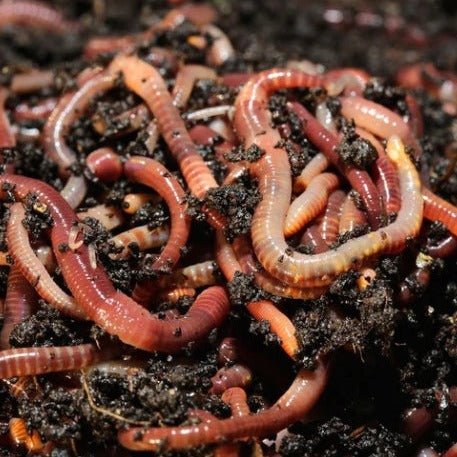Enjoy Healthy, Thriving Grass with the Help of Red Wiggler Express Lawn Care Tips
Enjoy Healthy, Thriving Grass with the Help of Red Wiggler Express Lawn Care Tips
Blog Article
The Extraordinary World of Red Wigglers: Boost Your Dirt Fertility Today
These little yet reliable organisms change organic waste into beneficial worm castings, substantially enhancing soil health and wellness and advertising sustainable practices. As we check out the benefits of vermicomposting and the sensible steps to produce an efficient worm container, the potential effect of these worms on your gardening success comes to be increasingly apparent.
Recognizing Red Wigglers
Red wigglers, medically referred to as Eisenia fetida, are a types of earthworm that play a critical duty in enhancing soil fertility. These worms grow in organic-rich environments, such as compost heap and rotting plant product, where they consume organic waste and eliminate nutrient-dense spreadings. Their unique anatomy, featuring a segmented body and a clitellum, enables them to duplicate swiftly and successfully process large amounts of organic matter.

The environmental importance of red wigglers extends past mere waste handling; they contribute to the soil food internet, fostering a varied area of bacteria that further boost soil wellness. Comprehending the biology and actions of red wigglers is essential for utilizing their full capacity in sustainable agriculture and horticulture methods.
Advantages of Vermicomposting
(Red Wiggler Express)Using the power of red wigglers via vermicomposting offers many benefits that substantially enhance soil health and wellness and fertility. Among the primary benefits is the manufacturing of nutrient-rich worm castings, which are a superb natural fertilizer. Red Wiggler Express. These spreadings contain necessary nutrients like nitrogen, phosphorus, and potassium, promoting durable plant growth and boosting plant yields
The presence of worm castings improves soil appearance, permitting for better water retention and water drainage. Red wigglers aid break down organic matter, accelerating decomposition and recycling nutrients back into the soil.
Vermicomposting additionally cultivates microbial task, which is vital for a healthy and balanced dirt ecosystem. Beneficial microorganisms grow in the visibility of worm spreadings, helping in the malfunction of organic materials and enhancing nutrition accessibility to plants.
Finally, vermicomposting serves as an efficient waste management service, reducing garbage dump waste by recycling kitchen scraps and various other natural materials. This not only adds to environmental sustainability however also advertises a round economic situation within gardening and agriculture.
Just How to Establish Up a Worm Bin
Establishing up a worm container is a simple process that can significantly improve your composting efforts. Begin by picking a proper container, which can range from a readily offered worm bin to a simple plastic or wooden box (Red Wiggler Express). Make certain the container has sufficient ventilation; tiny holes in the cover and sides will promote air flow
Following, develop a bed linens layer to give a comfortable setting for the red wigglers. This can be made from shredded newspaper, cardboard, or coconut coir, dampened to a wet, sponge-like consistency. Fill the bin to around one-third full with this bed linens material.
When the bed linens is prepared, it's time to present the worms. Red wigglers thrive in natural waste, so area them carefully onto the bed linens. Cover the worms with a light layer of extra bed linens to assist them adjust.
Feeding Your Red Wigglers
Giving the best food find out this here for your red wigglers is essential for their health and wellness and the performance of your composting system. Red wigglers flourish on a diverse diet, mostly including organic products such as fruit and veggie scraps, coffee grounds, and shredded paper. These products not only offer crucial nutrients but likewise add to the microbial task in the worm bin, which is important for the worms' food digestion.
It is very important to prevent particular foods, such as milk products, oils, and meats, as these can draw in bugs and develop unpleasant odors. Furthermore, citrus peels and extremely hot foods need to be limited due to their prospective to hurt the worms. A well balanced strategy to feeding includes keeping track of the amount of food presented to the container, ensuring that it is consumed within a reasonable period to stop excess waste buildup.
To promote optimal digestion, it is useful to slice or shred larger food items prior to adding them to the bin. This practice boosts the surface for microbial action, helping with quicker disintegration and enhancing the overall effectiveness of your composting system. Regularly observing the worms' feeding routines will help you readjust their diet plan as required.
Utilizing Worm Castings in Your Yard

(Lake Rhodhiss Bait)Integrating worm castings right into your yard can be achieved by mixing them right into the soil or using them as a leading dressing. The slow-release nature of these spreadings makes sure that nutrients are offered to plants over an extended duration, minimizing the requirement for artificial plant foods. In addition, worm spreadings include beneficial microbes that promote healthy and balanced soil ecosystems, boosting the total resilience of your yard.
To optimize the benefits, purpose to apply about one part worm spreadings to three parts dirt in your planting beds. Normal applications can result in enhanced crop returns and healthier plants, making worm castings an important source for both novice and knowledgeable garden enthusiasts alike. By utilizing this all-natural change, you can grow a flourishing yard while adding to sustainable horticulture methods.
Conclusion
In final thought, red wigglers exhibit the essential role of vermicomposting in boosting dirt fertility. Their capacity to transform organic waste into nutrient-rich castings considerably enriches soil structure and supports microbial diversity.
Report this page